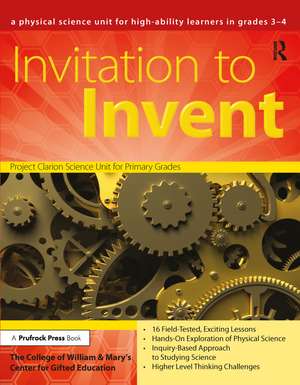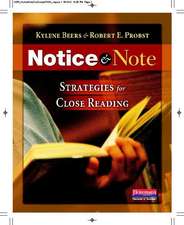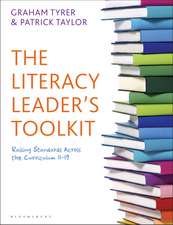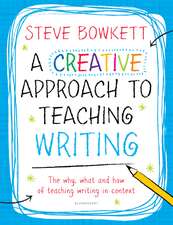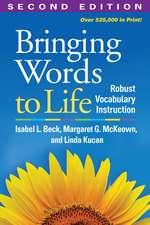Invitation to Invent: A Physical Science Unit for High-Ability Learners (Grades 3-4)
Autor Clg Of William And Mary/Ctr Gift Eden Limba Engleză Paperback – 15 ian 2010
Invitation to Invent was developed by the Center for Gifted Education at The College of William and Mary to offer advanced curriculum supported by years of research. The Center's materials have received national recognition from the United States Department of Education and the National Association for Gifted Children, and they are widely used both nationally and internationally.
Each of the books in this series offers curriculum that focuses on advanced content and higher level processes. The science units contain simulations of real-world problems, and students experience the work of real science by using data-handling skills, analyzing information, and evaluating results. The mathematics units provide sophisticated ideas and concepts, challenging extensions, higher order thinking skills, and opportunities for student exploration based on interest. These materials are a must for any teacher seeking to challenge and engage learners and increase achievement.
Grades 3-4
Preț: 282.62 lei
Nou
Puncte Express: 424
Preț estimativ în valută:
54.08€ • 56.65$ • 44.82£
54.08€ • 56.65$ • 44.82£
Carte tipărită la comandă
Livrare economică 08-22 aprilie
Preluare comenzi: 021 569.72.76
Specificații
ISBN-13: 9781593633912
ISBN-10: 1593633912
Pagini: 168
Dimensiuni: 216 x 279 x 10 mm
Greutate: 0.41 kg
Ediția:1
Editura: Taylor & Francis
Colecția Routledge
Locul publicării:Oxford, United Kingdom
ISBN-10: 1593633912
Pagini: 168
Dimensiuni: 216 x 279 x 10 mm
Greutate: 0.41 kg
Ediția:1
Editura: Taylor & Francis
Colecția Routledge
Locul publicării:Oxford, United Kingdom
Public țintă
Professional Practice & DevelopmentCuprins
Part I: Unit Overview Introduction to the Clarion Units Teacher’s Guide to Content Unit Glossary Teaching Resources Part II: Lesson Plans Lesson Plans Overview of Lessons Preteaching Lesson: Science Safety Preassessment Lesson 1: What Is a Scientist? Lesson 2: What Is a System? Lesson 3: What Scientists Do—Observe, Question, Learn More Lesson 4: What Scientists Do—Experiment, Create Meaning, Tell Others Lesson 5: Creative Problem Solving Lesson 6: The Process of Invention Lesson 7: The Mother of Invention Lesson 8: Introduction to Simple Machines Lesson 9: The Screw and the Wedge Lesson 10: The Inclined Plane and the Wheel and Axle Lesson 11: The Lever Lesson 12: The Pulley Lesson 13: Compound Machines Lesson 14: Final Touches Lesson 15: Invention Fair Lesson 16: Wrap It Up! Postassessment Appendix A: Concept Paper on Systems Appendix B: Teaching Models Appendix C: Materials List References Next Generation Science Standards Alignment
Notă biografică
The Center for Gifted Education at The College of William and Mary, a research and development center, was established in 1988 under the direction of Dr. Joyce VanTassel-Baska. The center provides services to educators, policy makers, graduate students, researchers, parents, and students in support of the needs of gifted and talented individuals. Located in Williamsburg, VA, the center has established a national reputation for excellence in research, curriculum development, and service. Several major grants, including funding from the Jacob K. Javits Gifted and Talented Students Education Act, have provided significant support for the work of the Center.
Recenzii
Don't be mislead by the subtitle. This book describes many opportunities for students of wide-ranging abilities to experience quality instruction and critical thinking. It's applicable to all learners, with adaptations and modifications. ,Diana Wiig,National Science Teachers Association, 4/26/10
Descriere
Invitation to Invent, a physical science unit for grades 3-4, engages students in investigations and observations that support their learning about simple machines and their uses. Students explore force, motion, and friction as they learn about the six simple machines and how they are put together to form compound machines.
Grades 3-4
Grades 3-4
